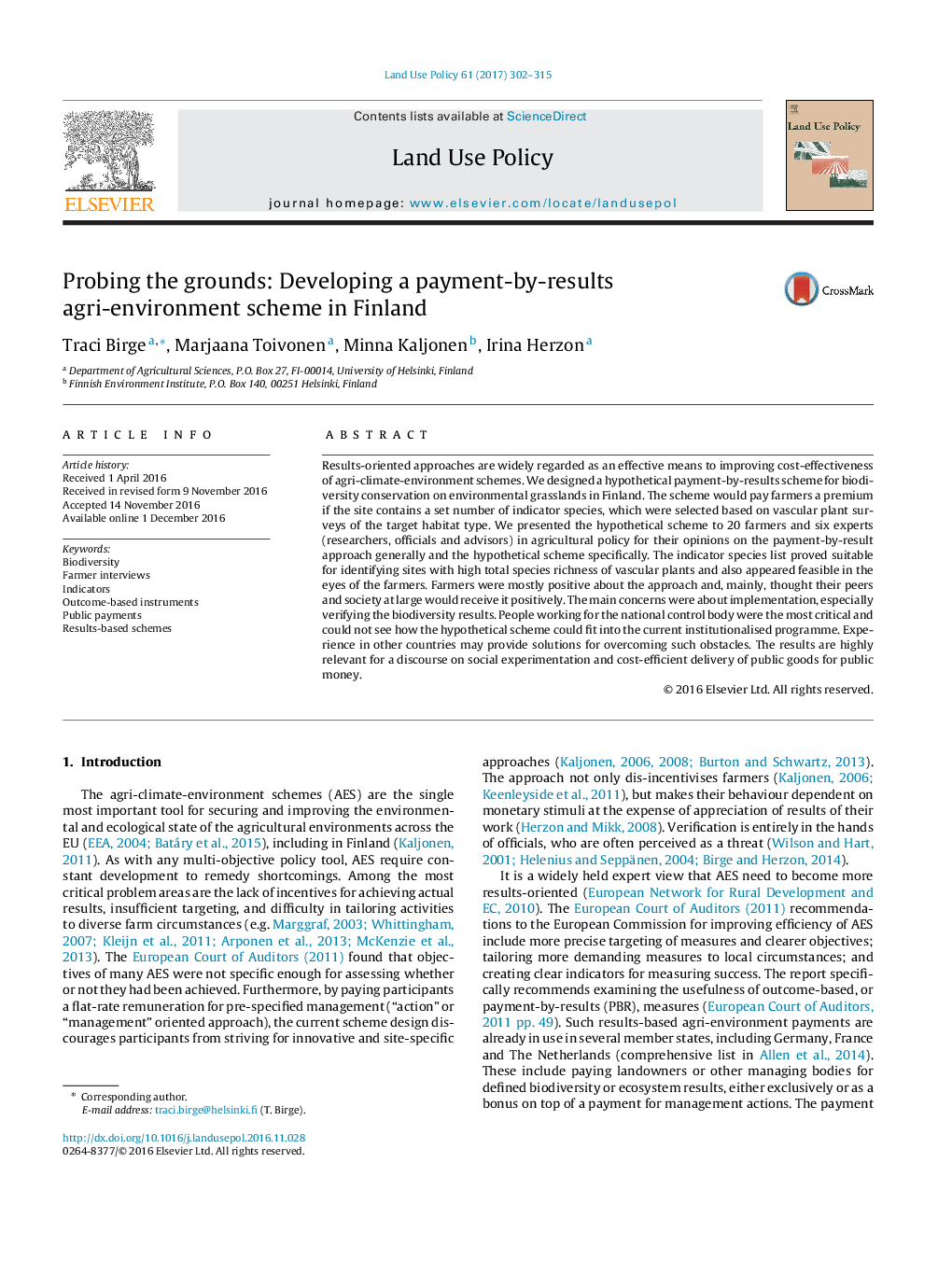| Article ID | Journal | Published Year | Pages | File Type |
|---|---|---|---|---|
| 6461316 | Land Use Policy | 2017 | 14 Pages |
â¢Potential for results-based agri-environment schemes is identified in Finland.â¢Indicator species work well in identifying most species-rich grasslands.â¢Farmers are supportive of the results-based approach.â¢Officials working in administration are most critical of the results-based approach.â¢Main concerns with the approach are the implementation and verification of results.
Results-oriented approaches are widely regarded as an effective means to improving cost-effectiveness of agri-climate-environment schemes. We designed a hypothetical payment-by-results scheme for biodiversity conservation on environmental grasslands in Finland. The scheme would pay farmers a premium if the site contains a set number of indicator species, which were selected based on vascular plant surveys of the target habitat type. We presented the hypothetical scheme to 20 farmers and six experts (researchers, officials and advisors) in agricultural policy for their opinions on the payment-by-result approach generally and the hypothetical scheme specifically. The indicator species list proved suitable for identifying sites with high total species richness of vascular plants and also appeared feasible in the eyes of the farmers. Farmers were mostly positive about the approach and, mainly, thought their peers and society at large would receive it positively. The main concerns were about implementation, especially verifying the biodiversity results. People working for the national control body were the most critical and could not see how the hypothetical scheme could fit into the current institutionalised programme. Experience in other countries may provide solutions for overcoming such obstacles. The results are highly relevant for a discourse on social experimentation and cost-efficient delivery of public goods for public money.
